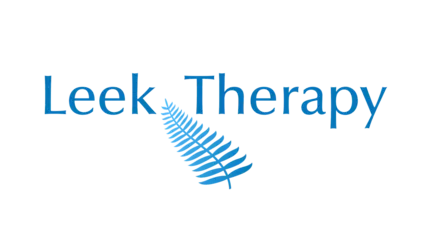
MEET THE FOUNDER & CEO
AMY LEEK
Licensed Professional Counselor , LMHC , MA (she, her)
As the Founder and Clinical Director of Leek Therapy, Amy is deeply committed to creating a warm, supportive, and inclusive space where individuals can heal, grow, and thrive. With extensive experience in treating anxiety, depression, trauma, relationship issues, and life transitions, Amy brings a compassionate, client-centered approach to therapy, helping clients navigate their challenges with resilience and self-discovery.
Not Currently Accepting New Clients
Membership with Massachusetts Mental Health Counselor Association NP9158069 / 2015
Driven by a passion for mental health advocacy and high-quality care, Amy Leek established Leek Therapy to provide collaborative, evidence-based therapy in a setting that fosters both client well-being and clinician growth. As Clinical Director, Amy supports a team of dedicated therapists, ensuring a culture of empathy, professional excellence, and continuous learning.
Amy holds an MA from Lesley University in Clinical Mental Health and Counseling Psychology, and is a Licensed Mental Health Counselor (LMHC) with specialized training in CBT, mindfulness, trauma-informed care, and relational and narrative therapy. Her work is grounded in the belief that healing is possible for everyone, and that therapy should be an empowering journey of self-awareness and transformation. Amy is also a Massachusetts Certified Clinical Supervisor (MCCS) and provides supervision to pre-licensed clinicians and consultation to other supervisors in the Practice. Before opening Leek Therapy in 2021, Amy worked at a dual diagnosis inpatient facility and partial hospitalization program, was an emergency crisis clinician at Cape Cod Hospital, did Behavioral Health Integration at Nantucket Cottage Hospital, and was an outpatient therapist in three school districts on Cape Cod.
In addition to clinical work, Amy is passionate about mentorship, clinical supervision, and fostering a workplace where therapists feel supported in their careers. Whether working directly with clients or guiding the practice’s vision, their goal remains the same: to provide compassionate, accessible, and high-quality mental health care to those who seek it.
🌿 “Healing happens in connection. My goal is to create a space where clients and clinicians alike feel supported, heard, and empowered.”

Communities
Gay Allied
Intersex Allied
Lesbian Allied
Non-Binary Allied
Queer Allied
Racial Justice Allied
Sex Worker Allied
Single Mother
Transgender Allied
Age Group
Adults
(Individuals)

Communities
Gay Allied
Intersex Allied
Lesbian Allied
Non-Binary Allied
Queer Allied
Racial Justice Allied
Sex Worker Allied
Single Mother
Transgender Allied
Age Group
Adults
(Individuals)
Specialities and Treatments
SpecialitIES
Top Specialties
Anxiety
Depression
Mood Disorders
Areas of Expertise
ADHD
Anger Management
Autism
Bipolar Disorder
Bisexual
Body Positivity
Codependency
Coping Skills
Dissociative Disorders (DID)
Divorce
Dual Diagnosis
Eating Disorders
Emotional Disturbance
Grief
Impulse Control Disorders
Lesbian
LGBTQ+
Open Relationships Non-Monogamy
Personality Disorders
Relationship Issues
Self Esteem
Self-Harming
Sex-Positive, Kink Allied
Stress
Substance Use
Suicidal Ideation
Thinking Disorders
Transgender
Trauma and PTSD
Women's Issues
treatment approachES
Types of Therapy
Acceptance and Commitment (ACT)
Attachment-based
Cognitive Behavioral (CBT)
Culturally Sensitive
Dialectical Behavior (DBT)
Feminist
Mindfulness-Based (MBCT)
Motivational Interviewing
Narrative
Rational Emotive Behavior (REBT)
Solution Focused Brief (SFBT)
Strength-Based
Trauma Focused
Specialities and Treatments
SpecialitIES
Top Specialties
Anxiety
Depression
Mood Disorders
Areas of Expertise
ADHD
Anger Management
Autism
Bipolar Disorder
Bisexual
Body Positivity
Codependency
Coping Skills
Dissociative Disorders (DID)
Divorce
Dual Diagnosis
Eating Disorders
Emotional Disturbance
Grief
Impulse Control Disorders
Lesbian
LGBTQ+
Open Relationships Non-Monogamy
Personality Disorders
Relationship Issues
Self Esteem
Self-Harming
Sex-Positive, Kink Allied
Stress
Substance Use
Suicidal Ideation
Thinking Disorders
Transgender
Trauma and PTSD
Women's Issues
treatment approachES
Types of Therapy
Acceptance and Commitment (ACT)
Attachment-based
Cognitive Behavioral (CBT)
Culturally Sensitive
Dialectical Behavior (DBT)
Feminist
Mindfulness-Based (MBCT)
Motivational Interviewing
Narrative
Rational Emotive Behavior (REBT)
Solution Focused Brief (SFBT)
Strength-Based
Trauma Focused
My Thoughts about Therapy
How Psychotherapy Can Help?
Psychotherapy can significantly enhance emotional health by offering a safe and structured space where individuals can explore their feelings, thoughts, and behaviors. It helps individuals understand the root causes of their emotions, offering insights into patterns of thinking and feeling. Many people experience overwhelming emotions like anxiety, sadness, or anger without understanding why. A therapist can help pinpoint these emotional triggers, allowing you to process emotions in a healthier way.Increased awareness of one’s emotions and reactions can lead to better emotional control, improved relationships, and more intentional decision-making.
What I Love About Being a Therapist?
Being a psychotherapist brings me immense fulfillment because it allows me to guide others through some of the most transformative and vulnerable moments of their lives. I love creating a safe, non-judgmental space where clients can explore their emotions, confront challenges, and experience personal growth. Witnessing people gain self-awareness, find healing, and develop resilience is deeply rewarding. I also cherish the privilege of building trusting relationships with clients, where genuine connection and empathy can lead to profound breakthroughs. Every day, I’m reminded of the strength of the human spirit and the power of change, and it inspires me to keep doing this meaningful work.
What I Say to People Concerned About the Therapy Process?
Therapy is showing up for yourself to check-in on your own mental health. It is as important that we care for our mental health as it is our physical health. Just showing up for yourself can increase your own self-love and improve your overall mental health.
My Thoughts about Therapy
How Psychotherapy Can Help
Psychotherapy can significantly enhance emotional health by offering a safe and structured space where individuals can explore their feelings, thoughts, and behaviors. It helps individuals understand the root causes of their emotions, offering insights into patterns of thinking and feeling. Many people experience overwhelming emotions like anxiety, sadness, or anger without understanding why. A therapist can help pinpoint these emotional triggers, allowing you to process emotions in a healthier way.Increased awareness of one’s emotions and reactions can lead to better emotional control, improved relationships, and more intentional decision-making.
What I love About Being a Therapist
Being a psychotherapist brings me immense fulfillment because it allows me to guide others through some of the most transformative and vulnerable moments of their lives. I love creating a safe, non-judgmental space where clients can explore their emotions, confront challenges, and experience personal growth. Witnessing people gain self-awareness, find healing, and develop resilience is deeply rewarding. I also cherish the privilege of building trusting relationships with clients, where genuine connection and empathy can lead to profound breakthroughs. Every day, I’m reminded of the strength of the human spirit and the power of change, and it inspires me to keep doing this meaningful work.
What I Say to People Concerned About the Therapy Process
Therapy is showing up for yourself to check-in on your own mental health. It is as important that we care for our mental health as it is our physical health. Just showing up for yourself can increase your own self-love and improve your overall mental health.

Insurance Accepted
Eligibility of Benefits Provided

Accepts Online Payments
Hassle Free Online Payments

Integrity
Honesty and Transparency

Offering Online
Telehealth Appointments

Insurance Accepted
Eligibility of Benefits Provided

Accepts Online Payments
Hassle Free Online Payments

Integrity
Honesty and Transparency.

Offering Online
Telehealth Appointments.

FIND US
COMPANY
CLIENT CARE
LEGAL
Copyright 2025. Leek Therapy. All Rights Reserved.